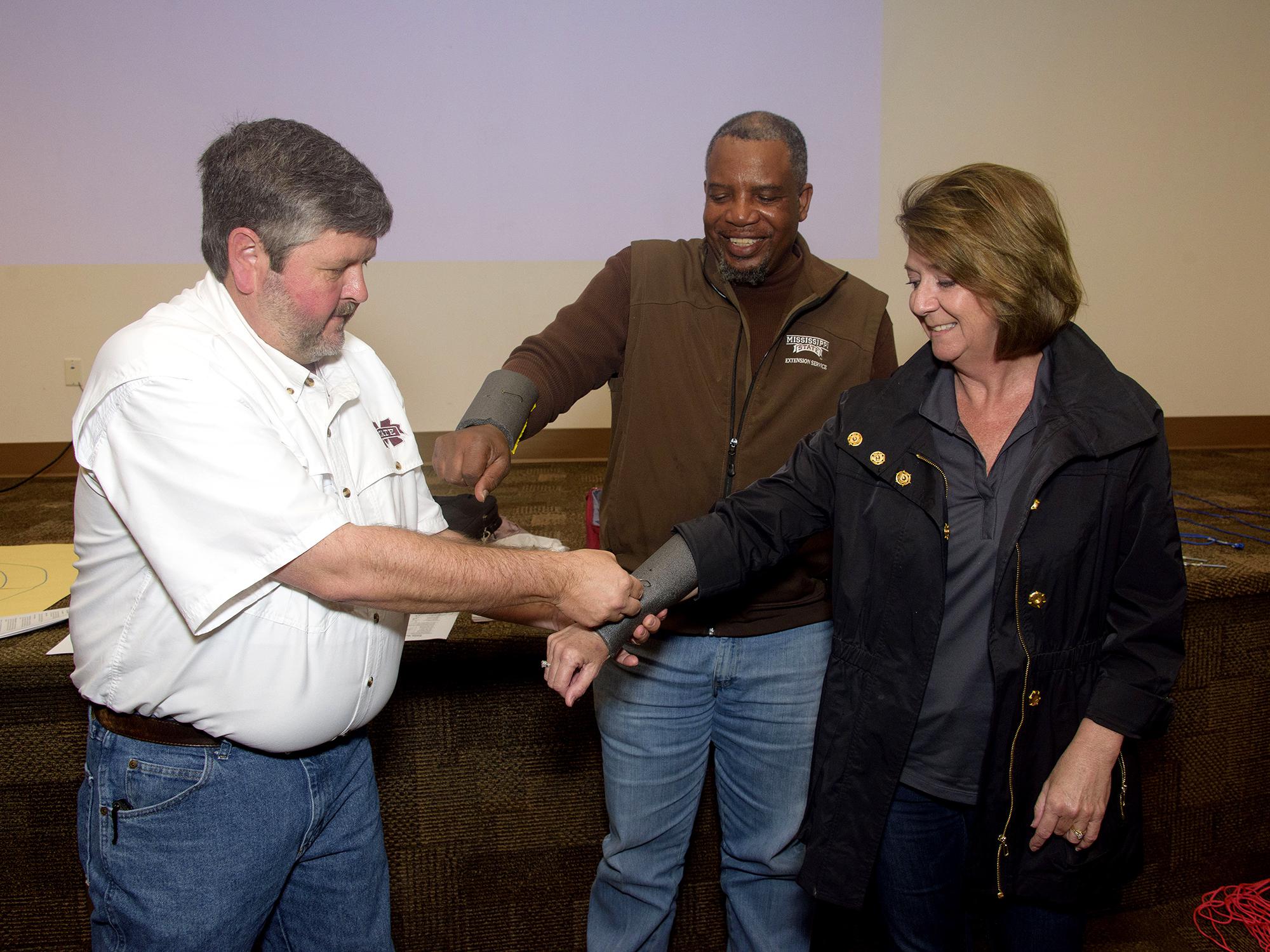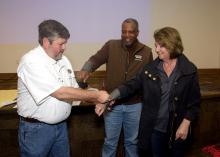Information Possibly Outdated
The information presented on this page was originally released on April 25, 2018. It may not be outdated, but please search our site for more current information. If you plan to quote or reference this information in a publication, please check with the Extension specialist or author before proceeding.
Extension begins expanding 4-H sport fishing program
STARKVILLE, Miss. -- Chickasaw County has piloted the 4-H sport fishing program in Mississippi for two years, but other counties will soon be offering the curriculum.
The Mississippi State University Extension Service, which oversees Mississippi 4-H, recently hosted a training for more than a dozen Extension agents who plan to implement the program in their counties. Scott Cagle, coordinator for MSU Extension in Chickasaw County, developed the framework for the program and tested it in 2016.
“In my county alone, we picked up 18 new 4-H’ers in a two-week period when we introduced this as a pilot program,” Cagle said. “We’ve got agents in 20 different counties going over the curriculum. They’re looking at what they can go ahead and initiate in their counties and want to eventually work toward district contests. Our primary goal is to provide education about fishing in Mississippi.”
The program currently includes 15 lessons 4-H agents and volunteers can teach students about the sport. These range from water safety and the history of fishing to snake identification and the use of baits and lures. The curriculum also has lessons on cooking fish, global positioning systems and state fishing rules and regulations.
For the pilot program, Cagle worked with local landowners to schedule local fishing trips for the students as a reward for finishing the lessons. Instead of directions to lakes, 4-H’ers were provided GPS coordinates to find the lake before the fishing trip. Cagle also worked with biologists with the Mississippi Department of Wildlife, Fisheries and Parks and Extension to secure locations and help record data.
Each 4-H’er was required to have a parent or adult present at every meeting, which helped to foster a “fishing buddy” relationship between the 4-H’er and the parent. Parents were not allowed to fish but were critical to the data recording process, Cagle said.
“Each fish that is caught is weighed, measured for length and classified by species,” he said. “This data helps us determine who wins each category during the fishing trip and gives the biologist information about the health of the lake that is reported to the landowner. This is a great benefit for the landowner that can be used to make management decisions.”
Leslie Burger, an assistant Extension professor in the Department of Wildlife, Fisheries and Aquaculture, took Cagle’s framework for the program and used it to create the package agents and volunteers will use to deliver it to their 4-H clubs.
“We see this as a needs-based program to which agents can contribute and make more meaningful and relevant to their local clients,” Burger said. “I think this is a great opportunity to get more kids engaged in 4-H in these counties. Some of the agents are already doing a lot in getting kids connected to nature. Others are wanting to but need a forum to do that.”
She added that the program is a great way for young people to get engaged in outdoor activities.
“This curriculum allows agents who are either confident in teaching about conservation or ones that are just stepping out to take it and run with it,” Burger said. “Anybody can afford a fishing pole. It’s not very equipment intensive. I am excited about the possibility this program provides to build the number of students in 4-H.”
Melissa Morgan, Extension agent in Copiah County, attended the training and plans to incorporate the new program in her area.
“By incorporating this program, young people who like fishing will develop skills and learning safety techniques they may not know,” Morgan said. “So many people think 4-H is all about horses, livestock, or shooting sports. This would give kids an activity that would not require them to own an animal or have a large monetary investment.”



